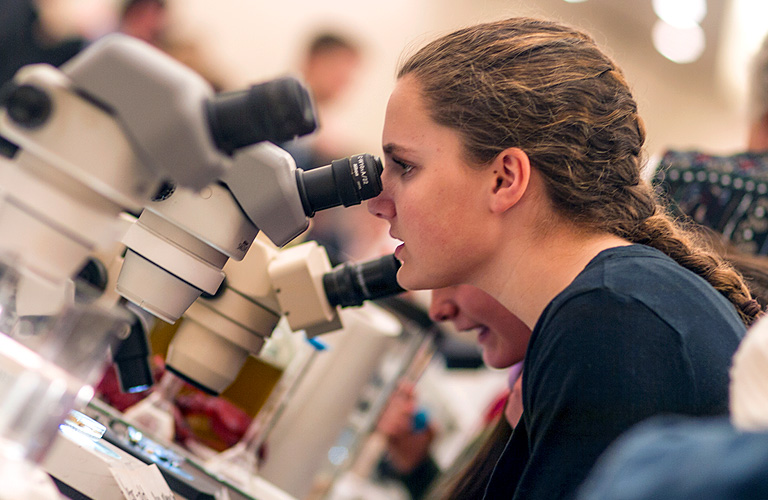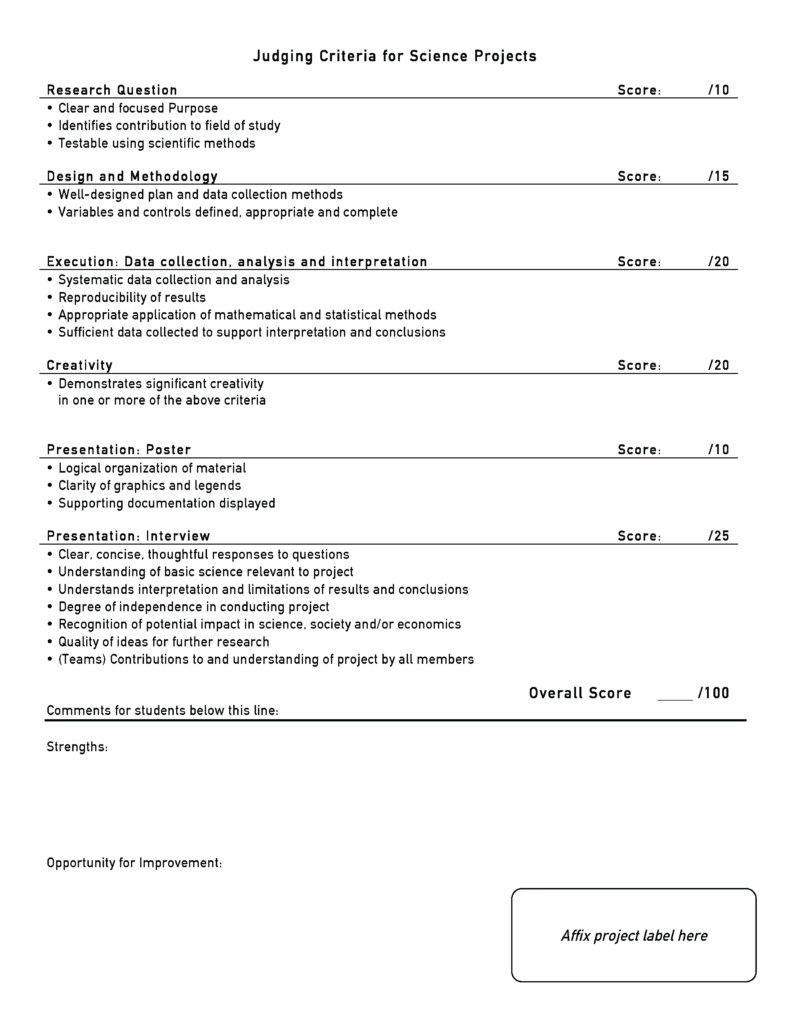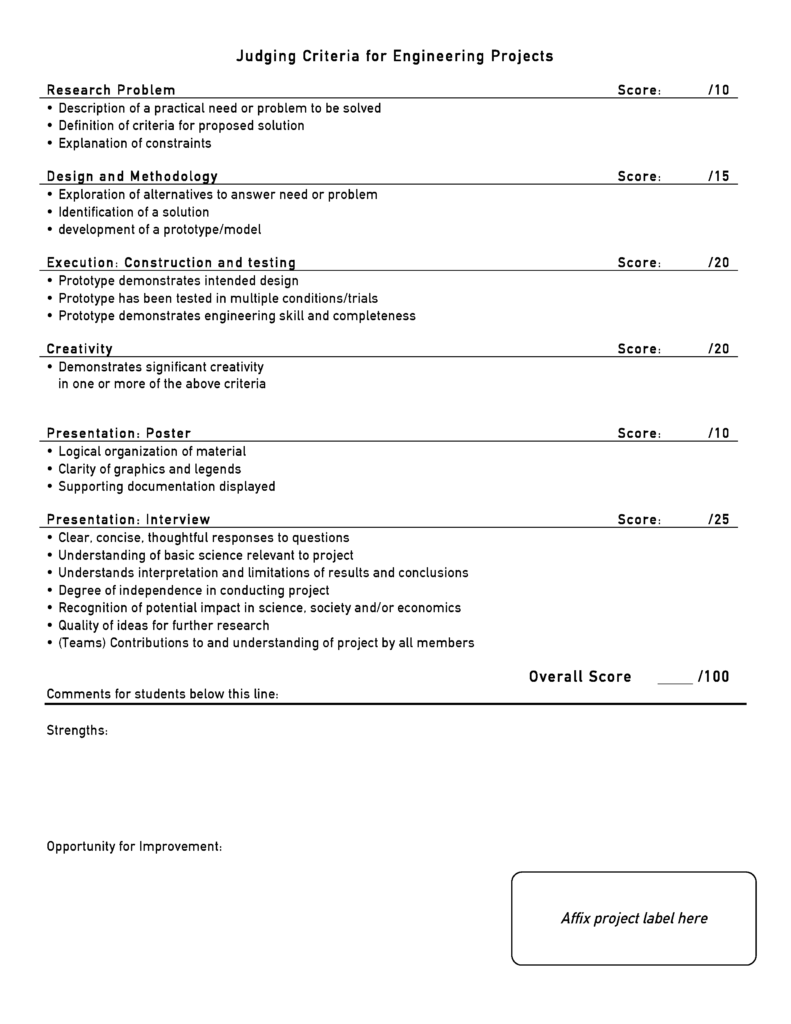Explore

Do you ever find yourself thinking, “I wonder…” when you witness something in the world around you? Perhaps you’ve encountered a problem and you wish someone would come up with a solution. That person could be you! The key to your success and enjoyment with Maine State Science Fair is to follow your own creativity and passions to develop a project that is truly your own. This simple guide will give you an overview of the adventure that is the Science Fair.
DEVELOPING YOUR SCIENCE FAIR PROJECT
Anyone who has read a mystery novel or seen a “whodunit,” has seen the scientific method in action. It is a logical, organized mechanism for identifying and researching a problem and devising a strategy to solve it. Below left, you will find steps of the scientific method. Students conducting an engineering project should follow the engineering design process, below right.
Step 1: Sign up / Register
Create an account in LaunchPad, our web-based science fair project submission and review system.
Step 2: Choose a topic
Your topic should be something that interests you and causes you to ask questions or stimulates your curiosity. Use science or engineering to solve a problem in your school or community. Ask questions about the topic. Do you know the answers? Does someone else know the answers? Investigate if other students have studied this topic.
Step 3: Conduct background research
What is already known about this topic? What questions are other people asking? What has yet to be discovered? Utilize background research resources in your school, library, online, or ask the experts. Document your findings in a literature review.
Scientific Research Projects
Step 4a: Ask the question
Boil your ideas down to a single research question or problem. Write a hypothesis or begin to sketch out a design solution.
Step 4b: Design an Experiment
Design an experiment whose results will either support or disprove your hypothesis.
Step 4c: Research Plan
After conducting your literature review, clearly describe your research plan that will allow you to answer your research question from 4a.
Engineering Design Projects
Step 4a: Specify Requirements
Brainstorm the objectives – the functionalities your solution should have – to address the problem. Identify constraints that may limit the possibilities of a solution.
Step 4b: Design & Build a Prototype
Envision a number of possible solutions and select one or more to serve as prototypes and build them.
Step 4c: Research Plan
After conducting your literature review, clearly describe your plan for testing your prototype(s) in relation to your objectives and constraints.
Step 5: Submit your project online
Submit the required forms in LaunchPad. If your project involves human participants, vertebrate animals, potentially hazardous biological agents or hazardous chemicals, activities, or devices, you must submit additional information and plans regarding research safety.
Step 6: Review and Approval
If your project involves hazardous materials, hazardous biological agents, human subjects, or vertebrate animals it is subject to prior review by the Scientific Review Committee and/or Institutional Review Board. You will be electronically notified that you may proceed. Projects NOT involving hazardous materials, hazardous biological agents, human subjects, or vertebrate animals may begin at any time — prior review by the Maine State Science Fair Scientific Review Committee is not required.
Step 7: Experiment
Begin experimentation. Record all data in your Data Notebook. If you are testing a prototype, you should test, redesign, and test again as necessary.
Step 8: Abstract
Once you have completed your experiment and recorded all data, submit the abstract form online.
Step 9: Create Your Display
Create a poster or tri-fold display describing your project. See Display Rules for what is fair game and what is not allowed.
Step 10: Compete!
Attend the Maine State Science Fair, present your project, ask great questions, and enjoy a day of discovery in STEM!
CATEGORIES
Many projects could easily fit into more than one category. It is your decision to choose the category that most accurately describes your project. Click on a category below to see its definition.
Study of animals and animal life, including the study of the structure, physiology, development, and classification of animals. Animal ecology, physiology, husbandry, cytology, histology, entomology, ichthyology, ornithology, herpetology, etc.
The science or study of the thought processes and behavior of humans and other animals in their interactions with the environment studied through observational and experimental methods. Includes clinical and developmental psychology, cognitive psychology, neuroscience, and sociology.
Includes basic (non-biomedical) research and engineering projects in cell physiology, immunology, genetics, molecular biology, neurobiology, and development.
This category includes research and engineering projects of relevance to human health. Projects include cell and organ physiology, molecular genetics of disease, immunology, nutrition, biomedical devices, imaging, and cell and tissue engineering.
The science of the composition, structure, properties, and reactions of matter, especially of atomic and molecular systems. Includes analytical chemistry, environmental chemistry, inorganic and organic chemistry, and materials chemistry including polymers, biomaterials, composites, and nanomaterials.
The study of information processes, the structures and procedures that represent processes, and their implementation in information processing systems. It includes systems analysis and design, application and system software design, programming, and datacenter operations. Includes computational biology, bioinformatics, algorithms, databases, operating systems, AI and machine learning, robotics.
The study of renewable energy sources, energy efficiency, clean transport, and alternative fuels.
Includes aeronautical engineering, civil engineering, mechanical engineering, vehicle and naval systems.
The analysis of existing conditions of the environment. The study of managing human interaction with the environment. Includes environmental engineering, atmospheric and climate science, environmental effects on ecosystems, geosciences, and water science.
The study of the measurement, properties, and relationships of quantities and sets, using numbers and symbols. The deductive study of numbers, geometry, and various abstract constructs, or structures. Mathematics is very broadly divided into foundations, algebra, analysis, geometry, and applied mathematics, which includes theoretical computer science. Includes algebra, analysis, combinatorics, geometry, number theory, probability and statistics.
The study of microorganisms, including bacteria, viruses, prokaryotes, and simple eukaryotes and of antibiotic substances. Includes antimicrobials, bacteriology, environmental microbiology, microbial genetics, and virology.
Includes the science of matter and energy and the study of anything beyond Earth. Projects include magnetics, optics, lasers, quantum computation, theoretical physics, biological physics, computational physics, and astronomy.
Study of plant life. Plant ecology, agronomy, horticulture, forestry, plant taxonomy, physiology, pathology, plant genetics, hydroponics, algae, etc.
If your project does not fit into any of the categories listed above, please contact sciencefair@jax.org for guidance. Please note that the MSSF team may move a project to a different category if there is a better fit.
IDEAS OF THE WEEK
Need some inspiration? The MSSF Team put their heads together and came up with some great starting points for projects. Do any of them spark your interest? We’re excited to see where you take these ideas!
This idea was suggested by the Maine Aquaculture Association:
This idea was suggested by The Algae Foundation:
COVID POLICY
- The event is closed to spectators beyond chaperones accompanying bussed students and parents who are driving their teens to the event because their school does not provide a bus.
- Everyone in attendance will remain masked for the duration of the event while in the Field House, including any aforementioned parents or chaperones.
- Any student who meets the CDC Guidelines for Quarantine or Isolation must participate virtually.
- Students can also switch to virtual participation for any reason, but they cannot switch from virtual to in-person.
- On a related note, Colby College does not allow any food or drinks, except for water, in the Field House. We will send students home with boxed lunches at noon.
INSTITUTIONAL REVIEW BOARD (IRB)
The IRB reviews all projects involving human participants. These projects must receive approval before the student researchers begin experimentation or prototype testing. The IRB meets approximately every two weeks, as shown here. Students wishing to have their project reviewed by the IRB must have all forms submitted with teacher approval in LaunchPad by noon on the deadline listed for that meeting.


